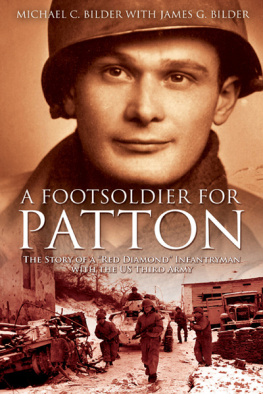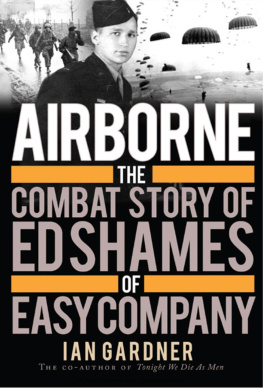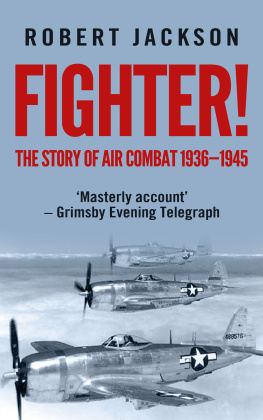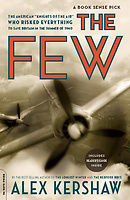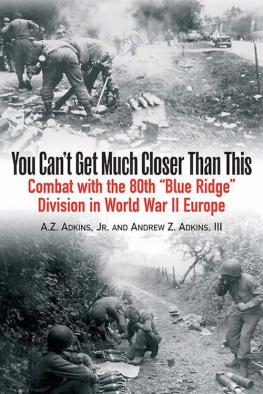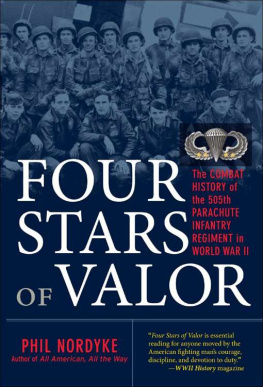COMMISSIONED IN BATTLE
A Combat Infantryman in the Pacific, WWII
Jay Gruenfeld
with Todd DePastino

COMMISSIONED IN BATTLE
2011 Jay Gruenfeld
Published by Hellgate Press
(An imprint of L&R Publishing, LLC)
All rights reserved. No part of this publication may be reproduced or used in any form or by any means, graphic, electronic or mechanical, including photocopying, recording, taping, or information and retrieval systems without written permission of the publisher.
Hellgate Press
PO Box 3531
Ashland, OR 97520
www.hellgatepress.com
Editing: Harley B. Patrick
Cover design: L. Redding
Cover photo: Courtesy U.S. Army, Department of Defense
(Seepage 79 for caption)
Library of Congress Cataloging-in-Publication Data
Gruenfeld, Jay, 1924
Commissioned in battle : a combat infantryman in the Pacific / Jay Gruenfeld with
Todd DePastino.
p. cm.
Includes bibliographical references and index.
ISBN 978-1-55571-700-1 (alk. paper)
1. United States. Army. Infantry Regiment, 103rd--Biography. 2. World War, 1939-1945--Campaigns--Philippines--Luzon. 3. United States. Army.--Officers--Biography. 4. World War, 1939-1945--Regimental histories--United States. 5. World War, 1939-1945--Personal narratives. I. DePastino, Todd. II. Title.
D769.31103rd .G78 2011
940.541273092--dc23
[B]
2011043822
Printed and bound in the United States of America
First edition 10 9 8 7 6 5 4 3 2
I was rewarded by an intense memory of men whose courage had shown me the power of the human spirit That spirit which could withstand the utmost assault. Such men had inspired me to be at my best when things were very bad, and they outweighed all the failures. Against the war and its brutal stupidity those men had stood glorified by the thing which sought to destroy them.
Siegfried Sassoon,
WWI Memoirs of an Infantry Officer
(1930)
All the worlds a stage,
And the men and women merely the players.
William Shakespeare,
As You Like It (1623)
COMMISSIONED IN BATTLE
A Combat Infantryman in the Pacific, WWII
Jay Gruenfeld
with Todd DePastino
To the brave Filipinos who resisted the Japanese occupation and aided American soldiers on Luzon.
And to my late wife Jan, the best thing that has happened to me in a full and largely happy life.
CONTENTS
CHAPTER ONE
Last Day
CHAPTER TWO
Basic Training
CHAPTER THREE
Journey into War
CHAPTER FOUR
Luzon Beachhead
CHAPTER FIVE
Commissioned in Battle
CHAPTER SIX
The Fighting Deuce
CHAPTER SEVEN
The Journey Home
CHAPTER ONE
Last Day
My last day as an active warrior began in a rain-soaked foxhole on Hill 860 near the Ipo Dam, about twenty-five miles northeast of Manila on the Angat River on Luzon in the Philippines. It was May 15, 1945, the ninth day of the Ipo Dam offensive and my ninetieth as a battlefield commissioned rifle platoon leader in the 103d Infantry Regiment of the 43d Division. I was twenty years and three months old, a veteran of two campaigns and coming to the end of the greatest, most enriching time of my life.
For the past four months and seven days, Id been in combat on Luzon continuously, except for two several day rests, grabbing a few hours sleep on the ground and bathing out of my helmet when I got the chance. I had, to my knowledge, killed at least fifteen Japanese, some with grenades, but most with my M1 Garand. Some were so close I could have bayoneted them. I prayed daily on Luzon for strength that I might fulfill my duty. A couple times, while under mortar fire, Ive broken down and prayed for a Golden Wound that would send me home. By my last day, I knew I probably wouldnt survive the war without a serious wound or sickness. Yet, like so many frontline riflemen, Id become tough and took pride in enduring what seems unendurable.

Map of Ipo Dam Offensive. (U.S. Army, Department of Defense)

Photograph of Ipo Dam Offensive. (U.S. Army, Department of Defense)
Camaraderie made this possible. Together, we laughed in the grimmest of circumstances and devoted ourselves completely to our mission and each others welfare. I knew of no other bond like it. When, after the war, I read Siegfried Sassoons remark that his comrades in the trenches of World War I stood glorified by the thing which sought to destroy them, I understood exactly what he meant.
As platoon leader, I comprehended just enough of our mission this last day to know it was important. We attacked the Ipo Dam to save Manila, which American and Filipino forces had liberated in early March. Cut off from the dams clean water supply, the city was on the verge of a cholera epidemic. The 43d Division was in the best position to move quickly, so with little preparation or reconnaissance of the area, we found ourselves in this strange mountain terrain, part jungle, part grassland studded with wild outcroppings of rock.
The Japanese, exhausted like us and poorly supplied, occupied a raggedy defensive line between the dam and Manila that tightened into a ring at Hill 860. Nambu machine gun pits, mortars, and artillery hid among the rock slabs, jungle stands, and shallow caves above the dam. Seven thousand entrenched soldiers awaited our approach, about 2,000 more than we anticipated.
On my last day, late in the morning, a Nebraska farm kid turned radioman named Chuck Wakeley relayed a message from our new C-Company commander, Captain Galyea.
Galyea wants you to send over a squad to help out Mullins platoon, Wakeley said. Theyre in a helluva fight.
I saw Mullins 3d platoon about 300 to 400 yards east of my position. They were stuck on a steep open ridge. I had only two squads left. Battle wounds and disease had more than halved our original fighting strength of forty-two men. I ran over to my squad leader, Staff Sergeant Hollis Morang, and his assistant Sergeant Harris Choate.
Take your men and head over to 3d platoon, I ordered. They need help. Then I added, Im coming with you.
I didnt have to join the ten-man squad. According to battlefield procedureby the bookmy job was to stay at platoon HQ, my foxhole, and direct action. But I never considered staying back. Playing the role of fearless leader, despite some fear, was what kept me going. I couldnt surrender the faade.
Soldiers standing upright under fire adopt a characteristic hunch in all wars in all places, as if to make themselves a smaller target, which is what theyre instinctively doing. We assumed that position as we made our way east-southeast down Hill 860. The soft ground threw up little splashes of mud where bullets occasionally struck around us, like hail on a muddy road.
The trapped 3d platoon occupied a slope offering little cover, save an occasional tree and ankle high grass that drooped with rain. Machine gun fire prevented their advance, while a large force of Japanese rifleman harassed them from the rear and right. The forward part of the platoon was pinned down in an untenable position, surrounded on three sides.


